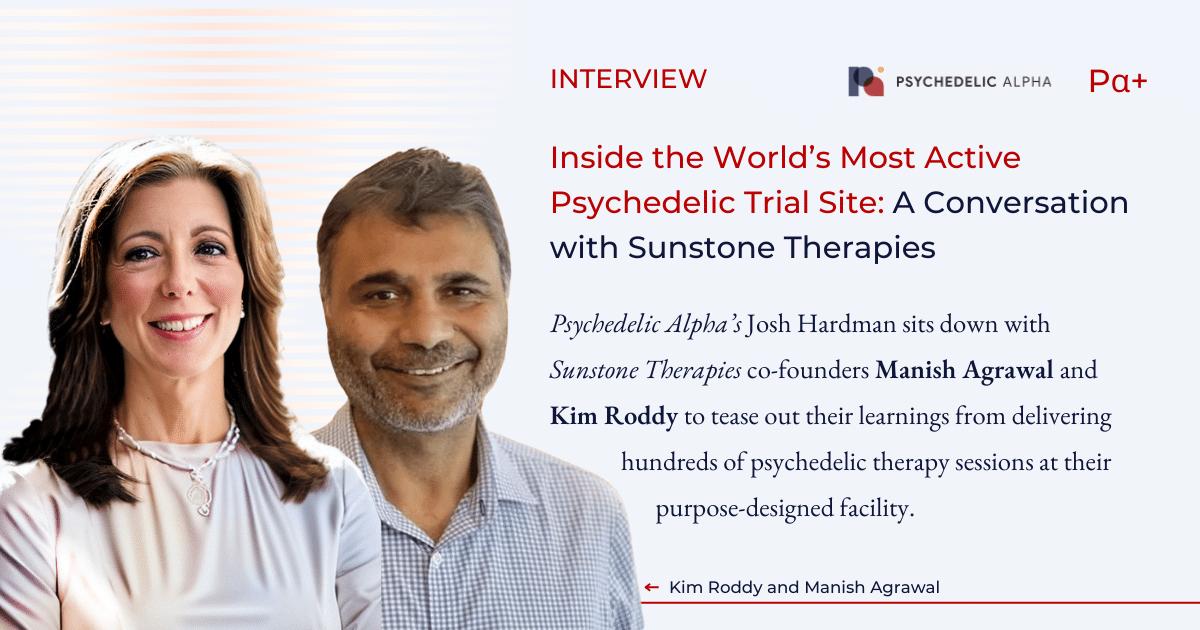With a purpose-designed facility in Rockville, Maryland, Sunstone Therapies is at the leading edge of psychedelic therapy trials and care delivery. In fact, it might just be the world’s most active site for such studies.
The team at Sunstone has administered psychedelics to patients across eight mental health indications—from generalised anxiety disorder and PTSD to those in palliative care—and six compounds, including the likes of psilocybin and MDMA but also shorter-acting psychedelics like 5-MeO-DMT.
Through those studies, the group has partnered with a whole host of psychedelic biotechs, trained over fifty therapists, and completed more than 250 sessions in the last 18 months alone.
This puts Sunstone in a unique position, with hands-on experience in delivering not only a half-dozen psychedelics to patients with various mental health indications, but also many of the extra-pharmacological protocols that sponsors specify.
That’s why Psychedelic Alpha Editor Josh Hardman was pleased to sit down with Sunstone co-founders Manish Agrawal (CEO) and Kim Roddy (COO) to tease out some of those learnings, both on the medical and operational side.
***
In this Interview
- Backgrounds, founding story
- Post-trial support
- Sunstone’s trial experience, portfolio; coordination complexities
- Training psychedelic practitioners
- Levels of psychological support
- Managing disappointment
- Managing costs, realising benefits
- The inadequacy of endpoints and scales
- Scaling Sunstone, the importance of place
- Thoughts on different psychedelics, protocols
***
To read this interview, please sign in to your Pα+ account…
Join Pα+ Today
Independent data-driven reporting, analysis and commentary on the psychedelics space: from business and drug development through to policy reform and culture.
Already a member? Log In
✓ Regular Bulletins covering key topics and trends in the psychedelics space
✓ Regular articles and deep dives across psychedelic research, policy and business
✓ Interviews with insiders
✓ Monthly interactive database and commentary on psychedelic patents
✓ Quick-take analysis of major developments
✓ A Library of primers and explainers
✓ Access to our full back catalogue


